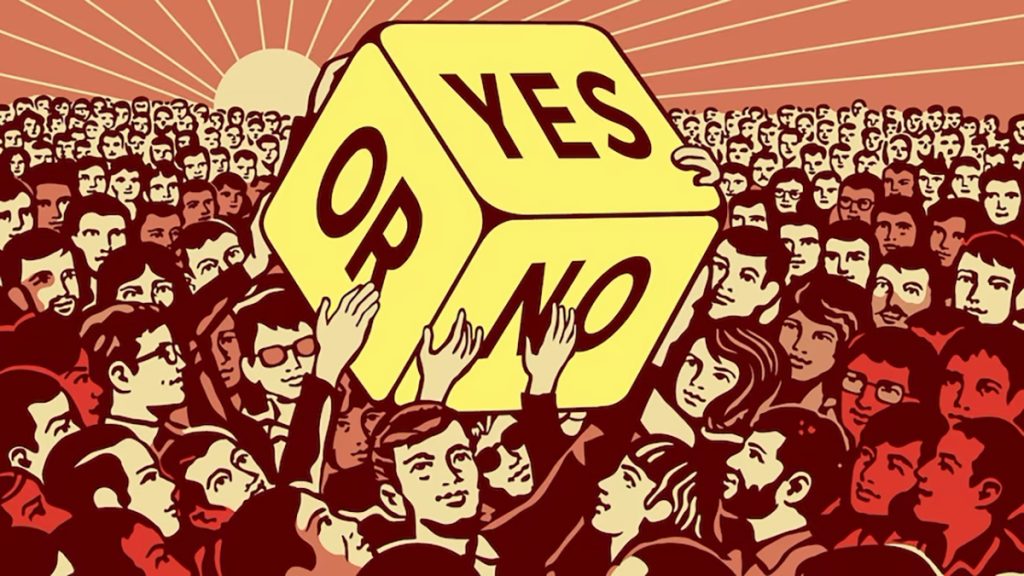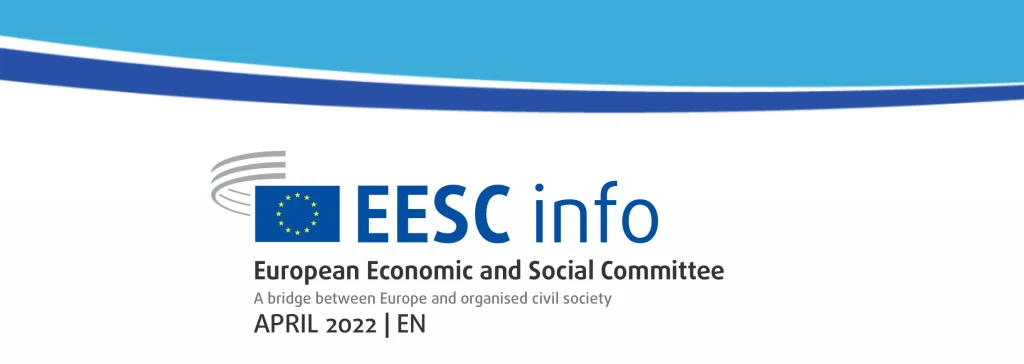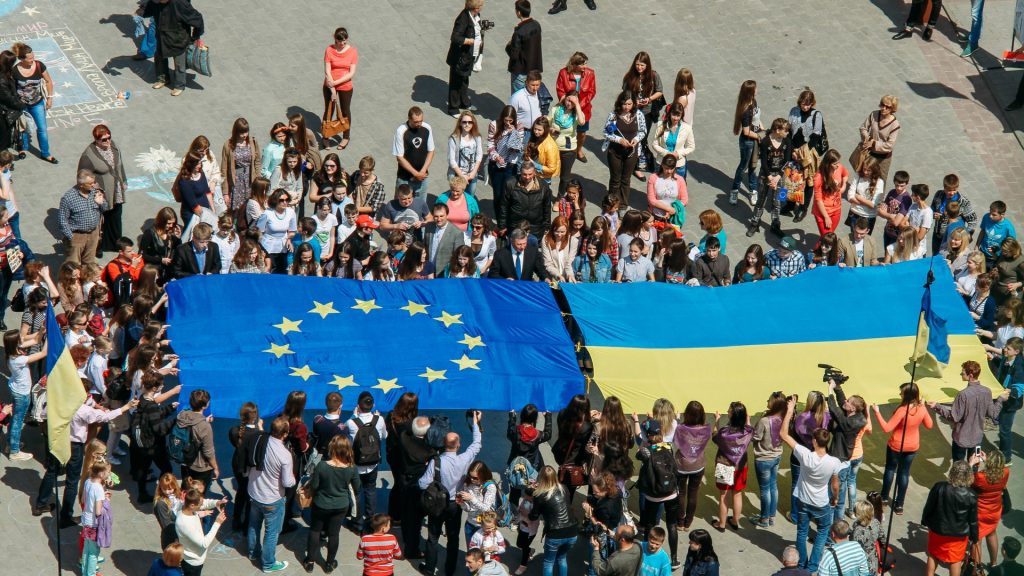- Today in the EU we have undermined the foundations of democracy, the foundations of legal systems, perhaps even the foundations of civility. We are witnessing a change in the social contract, in which there is no parliamentary debate.
- Throughout the year, we approach “preliminary truths” every day. But science today does not know what it may know tomorrow. There are no long-term studies of any type.
- There is fear due to uncertainty. Politicians, in a hurry, try to give pragmatic quick answers to difficult situations, and as a result, we get self-dynamic discourses.
- States allow for a “policy of exclusion”. This is unacceptable in a democracy.
- The debate on the “return to basic rights” is illegitimate and very dangerous. We acquire our rights at birth. They are integral and indivisible. In fact, no one has ever taken away our rights from us, that is, we have them. They have been temporarily restricted, this is something else than “taking” them, so we should immediately stop talking about “taken-returned” rights. No one needs to “deserve” their basic rights or “qualify” for them. Even the most brutal murderers and terrorists preserve human rights.
- Citizens in a democracy are fundamentally equal before the law. But today, due to the wrong discourse, two polarized groups are emerging. It seems that one has more rights than the other.
- We have now very quickly and simply semantically entered into a discourse that has violated two taboos: questioned equality before the law and put forward confidence in the hypothetical danger of a person.
- For 2000 years, the principle of “dubio pro reo” has been in force in our legal system. It means that in case of doubt, the decision is made in favor of the accused. This means that as long as no one has committed a crime, a person may look suspicious, but can only be punished if he has committed a crime. In the current situation, we allow the state to say: “as long as you are not vaccinated, you are hypothetically contagious, I hypothetically declare you a dangerous person.” But no one proves it. This means that we see a tendency to lose the legal principle in dubio pro reo.
- A person who infects another person is innocent of the infection (of course, if he does not intend to infect).
- There are many cases when there are several people in the room, one is infected and does not know it, and the next day two or three of the group are infected, but the other three are not. This means that not everyone becomes infected automatically, so unvaccinated people are not necessarily contagious. Punishment for a hypothetical danger is not possible in a state governed by the rule of law.
- Legally, a person has no right not to receive health problems, including the right to non-infection, the right not to be involved in an accident, or the right to be deprived of other life risks. If a person is afraid of an event, he protects himself from it. Fear remains with a person, and he has no right to extrapolate (externalize) it to other people in society. The externalization of fear cannot be the basis of a free society.
- In democracies, ministries and authorities, in general, are obliged to calm down, not intimidate, in crisis situations. With their hysterical reactions, governments not only frightened people but also instilled guilt in them. Fear and guilt are two very unpleasant emotions that cause aggression.
- By instilling guilt, we move away from the principle of responsibility for our own lives and health.
- We have begun to individualize the general system of law and to believe that we have the right to demand that the state protect its individual right to, say, clean air (a right that can be invoked in court).
- Until now, classical human rights have concerned either freedom or equality. We had political goals – to protect the environment and clean air. These are political goals, not individual rights. Today there is a shift in this area. In fact, we see a shift in the whole system of law. We are becoming a society of extortion: “if the state does not solve the environmental issue for me, then I can sue it.” In any case, you have to blame someone. We no longer assume that there are mistakes. And, sometimes, the people who allow them are not defendants, even when the consequences are tragic. We lose sight of the fact that something negative can happen without someone being to blame.
- We observe a discussion in which our body is politicized, in which it no longer belongs to us, it belongs to politics.
- We used to be able to afford to get sick, but today the idea that you can stay at home and take sick leave is almost unacceptable. We obviously no longer accept the disease because we are driven by the need for efficiency. Because everyone has to go to work. This rejection has changed society in its ability to deal with such things as we have now.
- Definition of health by WHO: “A state of complete physical, mental and social well-being and not merely the absence of disease or infirmity“. And this should be extremely relevant now. If we do not have a corona, then we are healthy. So, if we suffer from depression, obesity and we do not have coronavirus – then we are healthy. Think about it: how smart is what we do?
- The fact that people are dying is not a political argument. The question is which people die in what conditions, and that is where the question of proportionality lies – people also die of depression, some jump from the balcony because of covid, and some – from restrictive measures, but behind them, there is no camera, no intensive care bed. Shouldn’t we look at all what is happening in society? Not to mention the global south, where, by the way, we see very unpleasant figures on how many children can now starve to death… So recently, the UN talked about 250 million children who, due to economic damage through quarantine measures around the world, are more likely to die of hunger. Of course, we do not read this in the evening news, because this is not the focus of the discussion, and therefore our energy does not get there. We dwell on the narrow aspect. We can talk about doing our best to avoid overloading our hospitals. But the question is, are we doing everything we can without threatening others, or are we doing everything we can and threatening others? This is a big difference.
- I see that the law of dynamic development is applicable to the coronavirus: no one wanted anything special here, but you can probably find some arguments to say that last year we panicked under the impetus of the Bergamo outbreak. And, so to speak, “climbed a tree” and now we can not get off it. Moreover, we jump from one tree to another (statistics, quarantines, now certificates). And no one thought about “getting off the tree” first to look at what happened in the beginning from a current perspective.
- The central question of the corona is dignity versus life: can you forbid a grandfather to see his grandchildren? Quarantine restrictions contributed to the loneliness of the elderly and thus violated their dignity. In the Constitution, dignity comes first. It stands above life. Dignity is inviolable, while life is transient. Societies are weaned from thinking that life tends to end. Even churches have forgotten that their task is to point out that life has the ability to end. Only human dignity really determines a person today in this society at this time.
- Germany passed a law on euthanasia shortly before the corona, in February 2020. The Federal Constitutional Court has justified the law by saying that putting the protection of life by the state above human autonomy is contrary to the dignity that is at the heart of our system of values. In theory, anyone over the age of 70 could say at the beginning of the first lockdown that they wanted to see their grandchildren because they did not know if they would be alive tomorrow and that their autonomy was higher than the state’s obligation to protect life.
- “Consider it the greatest folly to put a naked life above what is worth living for.”
- Recent changes to the German law on protection against infections have no limit in time. And “incidents” (positive test results), on the basis of which human rights are restricted, are identified arbitrarily. They do not comply with the principle of proportionality. We must always remember that restrictions on fundamental rights actually require a test of proportionality.
- Our body becomes political. We are getting caught in an eternal debate that our ill health can be costly to society. We can go so far that our skiing may be considered too dangerous and society may refuse to pay for a broken leg during skiing. Or when a person has diabetes, we can refuse to pay if person’s behavior led to it. We go so far because we have the best options for “measuring” (testing, researching) the body. And the body becomes highly politicized: if you do not have an optimal body, you need to get it. “How come you didn’t run 20 km and didn’t do yoga this week?” People are under tremendous pressure that can be used for political purposes. Are we are digitizing everything now, and will our digital health soon be the basis of our basic rights with the help of a “passport”? We are no longer protected from abuse.
Ulrike Guérot, Professorin für Europapolitik und Demokratieforschung an der Donau-Universität Krems, Gründerin des European Democracy Lab (EDL) in Berlin




